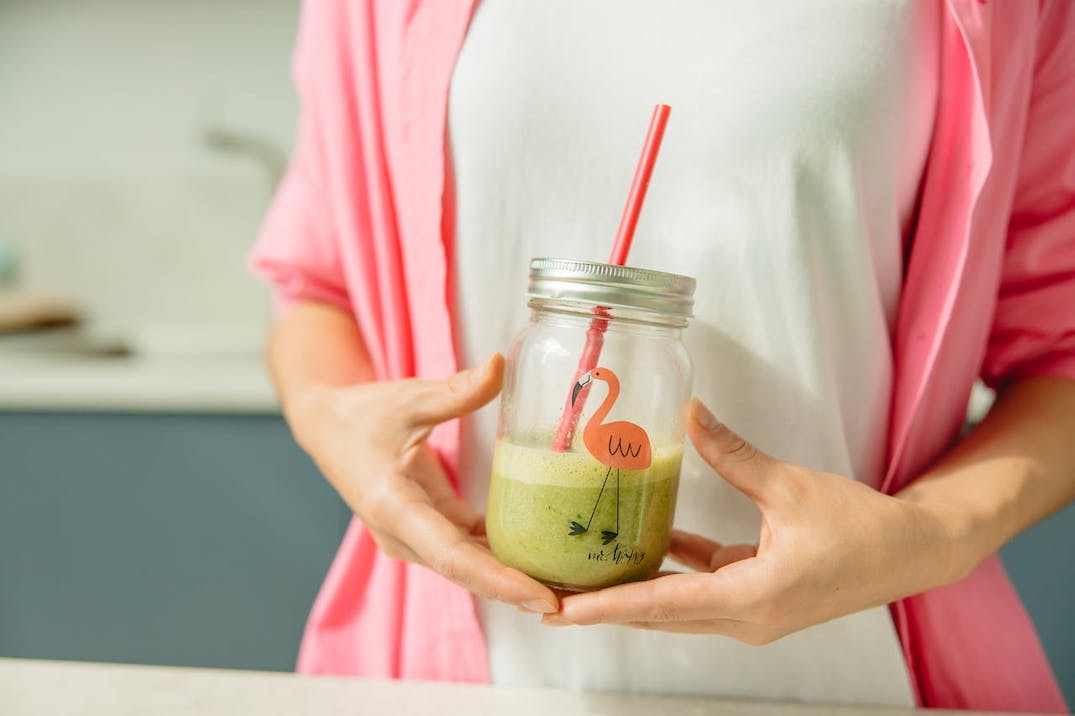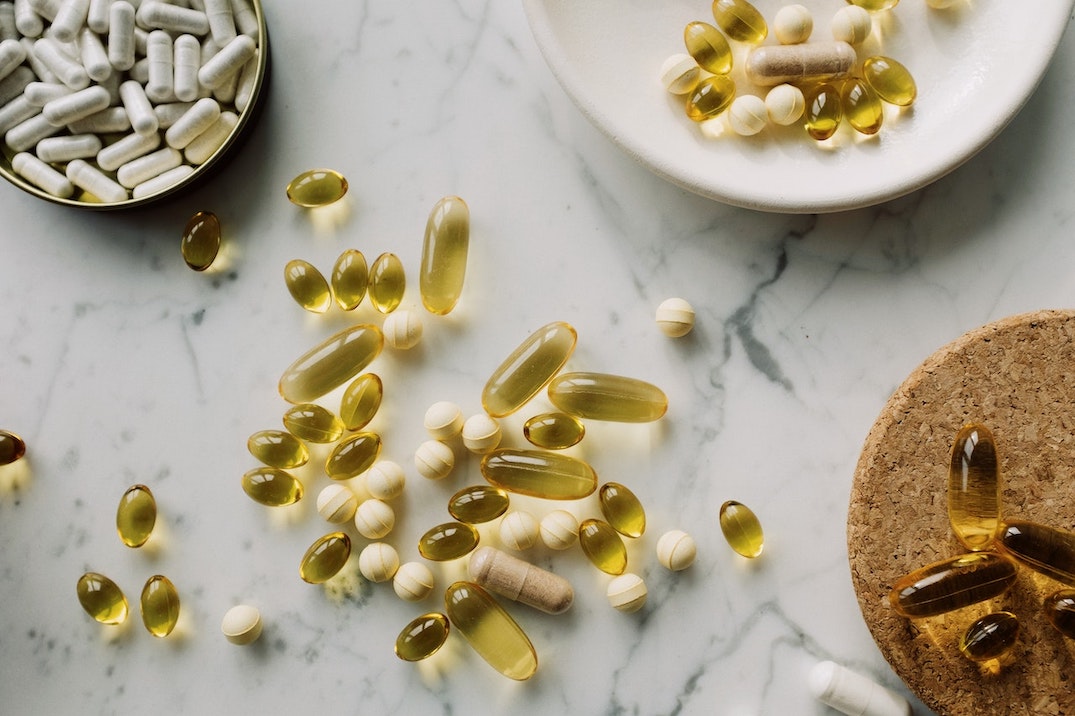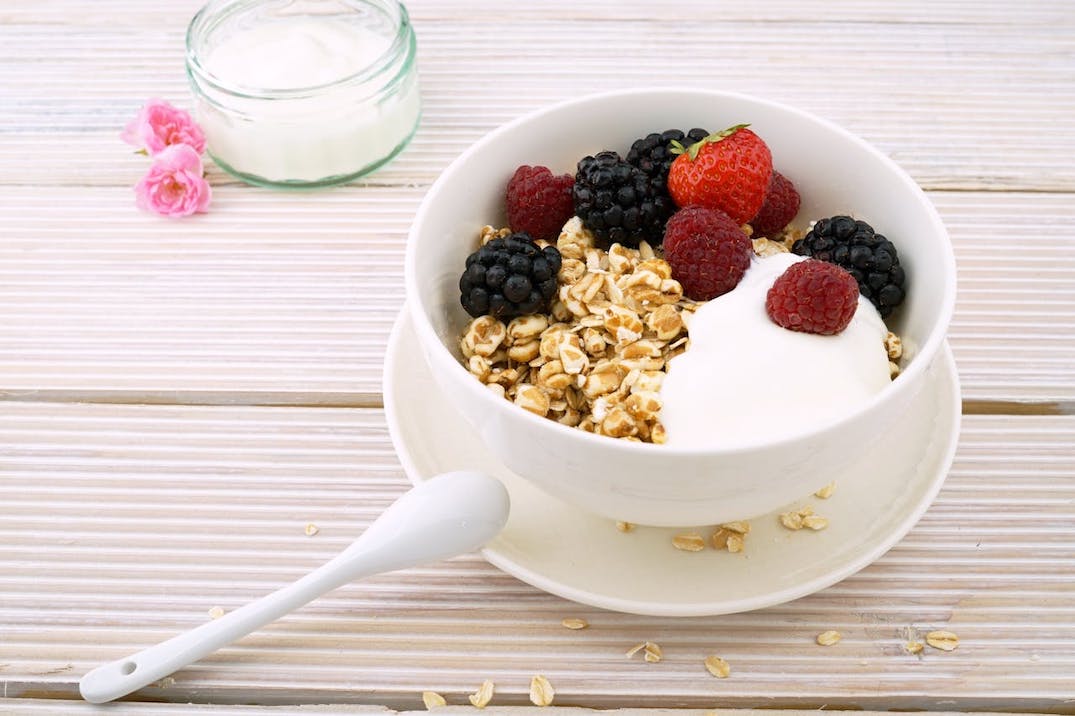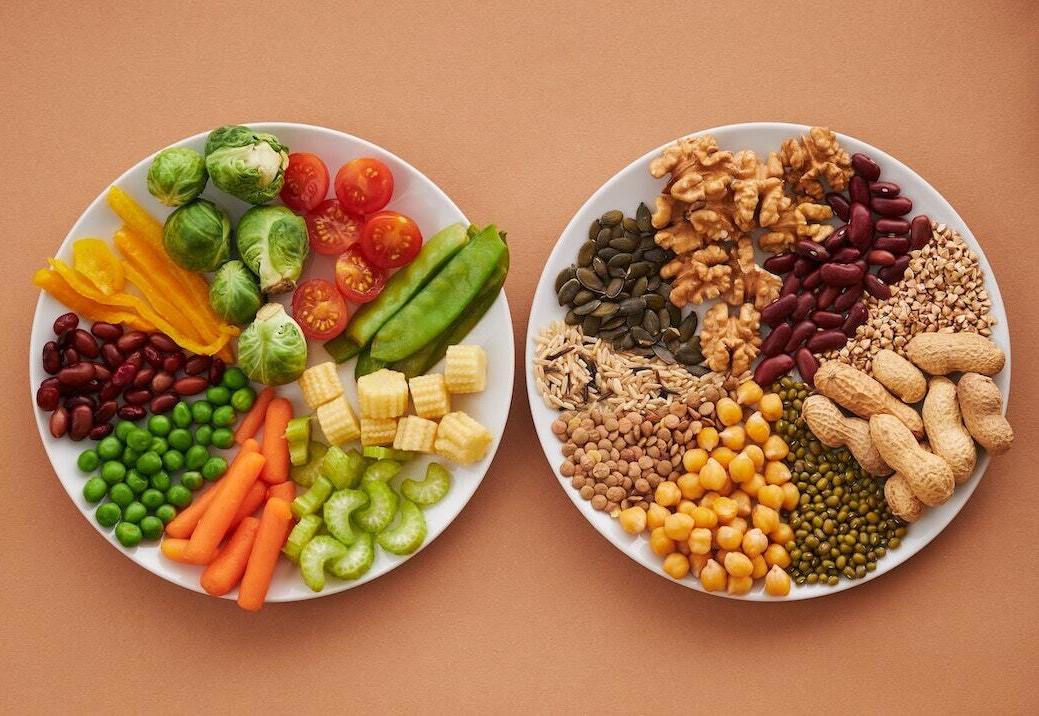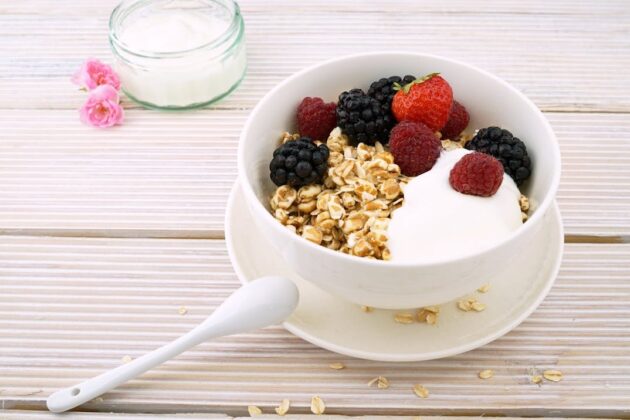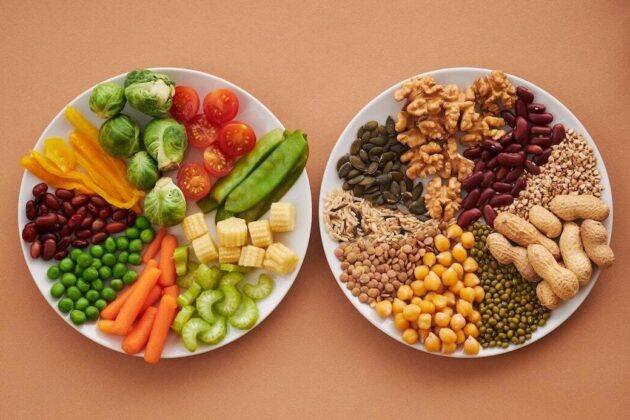Ulcerative Colitis Diet Plan: Best Foods, Foods for Flare-Ups, & More
Ulcerative colitis is a chronic inflammatory bowel disease that affects the colon. The exact cause of ulcerative colitis is unknown, however, some factors such as diet and stress are known to aggravate ulcerative colitis.
Symptoms of ulcerative colitis include diarrhea, abdominal pain and cramping, rectal pain and bleeding, fatigue, urgent bowel movements, and weight loss. When these symptoms occur, they can easily interrupt someone’s daily life. Managing symptoms largely involves avoiding certain foods that may cause symptoms to recur.
Most people with ulcerative colitis benefit from eating foods that are easy to digest and avoiding trigger foods. This guide goes over what a healthy diet for ulcerative colitis looks like, including the best foods to eat, which to avoid, and more.
Ulcerative colitis diet overview
The goal of following a diet for ulcerative colitis is to prevent flare-ups of symptoms. Many different diet patterns have been studied to help determine the best diet for ulcerative colitis. The diet that works best for you depends on your situation and your specific trigger foods.
Foods included in an ulcerative colitis diet are those that are easy to digest such as refined grains. Foods low in fiber and residue are recommended over high-fiber foods to prevent irritating your intestines. In addition, it is also recommended to avoid foods that contribute to inflammation such as highly processed foods.
Besides a list of foods to include and avoid, you can also prepare foods in ways that help your body digest more easily. Removing the skins, peels, and seeds of certain fruits and vegetables can make these foods more tolerable. Cooking vegetables until they are fork-tender makes it easier for your body to digest compared to raw vegetables.

Improve your gut health with support from a Registered Dietitian
90% of Zaya Care patients pay $0 for dietitian visits
Best foods to eat for ulcerative colitis
There is a lot of research on what foods are best to eat with ulcerative colitis. Typically, it is best to decrease high-fiber foods and replace them with foods that are easy to digest. However, individual tolerance varies. Ideas for foods to eat include (but are not limited to):
- Fruits with low insoluble fiber and residue. Too much insoluble fiber can cause more frequent or urgent trips to the bathroom. Insoluble fiber does not dissolve in water, so one way to tell if a fruit is low in insoluble fiber is if it dissolves in water. Applesauce, ripe bananas, canned fruits, cantaloupe, nectarines, and raspberries are typically well-tolerated because they are low in fiber and low in residue.
- Vegetables low in insoluble fiber and residue. The term “residue” refers to any solid content from undigested food that may end up in the large intestine. This includes the seeds, skins, and peels of certain fruits and vegetables. This can irritate the intestines and lead to symptoms. Beets, pumpkin, squash, green beans, and wax beans are well-tolerated by most people.
- Cooked vegetables. Raw vegetables may cause uncomfortable bloating and gas because they can be difficult for your body to break down. Cooked vegetables, such as carrots, tomatoes, and zucchini without the skin, peel, or seeds, are generally well-tolerated by those with ulcerative colitis.
- Foods high in omega-3 fatty acids. Omega-3 fatty acids may help reduce intestinal inflammation in patients with ulcerative colitis. Walnut butter, flaxseed oil, and fatty fish such as salmon, mackerel, and herring are great sources of omega-3 fatty acids.
- Resistant starches. Resistant starches are natural sources of fiber found in foods like potatoes, plantains, legumes, oatmeal, cornmeal, gluten-free bread, and rice. They are fermented in the large intestine, which means they feed the “good” bacteria in your gut. Clinical trials have shown that consuming resistant starches may lead to improvements in diarrhea, constipation, and tissue repair in some individuals with an inflammatory bowel disease.
- Lean proteins. Protein is an important part of a healthy diet. Consuming enough protein each day helps repair and build your body’s tissues and promote the healing process. To avoid flare-ups, it is best to choose lean sources of protein, such as chicken breast, fish, turkey, tofu, and eggs.
- Dairy alternatives. Based on current research, it is debatable whether dairy is helpful or harmful for people with ulcerative colitis. Although tolerance may vary among individuals, dairy may cause or worsen symptoms of ulcerative colitis. It is best to avoid dairy if you know it triggers your symptoms. Substitutes for milk and yogurt include products made from almonds, soy, coconut, and hemp.
- Non-spicy flavors and seasonings. Spicy foods often trigger or worsen ulcerative colitis flare-ups. To add more flavor to your food without the extra heat, try adding spices such as turmeric, ginger, oregano, cumin, chives, and fresh herbs.
- Foods with probiotics. Probiotics are microorganisms found in your intestines that improve digestion. They are the so-called “good bacteria” that provide benefits to your digestive system. Although studies on probiotics and ulcerative colitis are limited, foods that contain probiotics are typically well-tolerated by patients. Incorporating kefir, yogurt, kimchi, sauerkraut, or tempeh into your diet may help restore bacterial balance in your intestines and may help prevent flare-ups.
- Nut butters. Peanut butter, almond butter, and cashew butter are great sources of healthy fats and protein. Choose smooth nut butters over chunky ones to avoid issues with digesting nut pieces.
>> Find an Ulcerative Colitis Nutritionist That Accepts Your Insurance
Best foods to eat for ulcerative colitis flare-ups
An ulcerative colitis flare-up is when symptoms have returned after a period of remission. While certain foods may trigger a flare-up, other foods, like those listed below, may help prevent symptoms from recurring or from getting worse.
- Refined grains. Refined grains contain little-to-no fiber compared to whole grain products. This makes it easier for your body to digest. White pasta, rice, bread, and crackers are examples of refined grains.
- Low-fiber foods. Fiber can aggravate symptoms, especially when you consume too much. Other than refined grains, other good low-fiber food choices include applesauce, canned fruit, fruit juices, and lean proteins.
- Probiotics. Yogurt, kefir, kombucha, kimchi, and sauerkraut are typically well-tolerated by patients with ulcerative colitis and may provide protective benefits to your intestinal tract.
- Salmon. Salmon is not only a source of high-quality protein, but it also provides omega-3 fatty acids, which may help reduce inflammation. If you do not like salmon, other fish such as herring and mackerel also provide similar benefits.
- Lean proteins. To help retain lean muscle mass and promote the healing process, it is important to consume adequate protein every day. Protein sources that contain high amounts of fat may aggravate symptoms, so it is best to choose lean proteins such as chicken breast, turkey, lean beef, fish, and tofu.
- Smooth nut butters. Incorporating peanut butter, almond butter, or cashew butter will help you consume more protein and healthy fats. The nut pieces in chunky nut butters can be difficult to digest, causing further irritation during a flare-up. It is best to choose smooth over chunky nut butters.
- White rice with turmeric. White rice is low in fiber and easy to digest. Turmeric acts as a powerful antioxidant, fighting inflammation in the body. This combination makes the perfect side dish for a lean source of protein during a flare.
- Hydrating fluids. Because diarrhea is a common symptom of ulcerative colitis, staying hydrated is crucial during a flare-up to replenish the fluids lost. Drinking a combination of water and electrolytes, such as sports drinks, will help prevent dehydration.
- Cooked veggies low in fiber and residue. Sweet potatoes, carrots, summer squash, and butternut squash (all peeled and cooked fork-tender) are vegetables that are typically well tolerated when symptoms are recurring.
Foods to avoid with ulcerative colitis
Understanding what kinds of foods to avoid is important to prevent flare-ups from recurring. It is also important to note that tolerance of certain foods varies among individuals. Foods that are often recommended to avoid include:
- Whole grains. Although whole grains provide digestive health benefits to the general population, a person with ulcerative colitis may want to avoid whole grains because they are difficult to digest and may cause flare-ups. Whole grains include brown rice, quinoa, oatmeal, and whole grain products such as whole grain cereal, bread, and pasta.
- High-fiber vegetables. Because vegetables contain important nutrients for your health, you should not eliminate them completely. Instead, avoid vegetables that are high in fiber. These include artichokes, peas, lima beans, Brussels sprouts, broccoli, cauliflower, and cabbage.
- High-fiber fruits. As with vegetables, you don’t want to miss out on key nutrients from fruit. Instead of avoiding all fruits, try avoiding fruits with high amounts of fiber per serving, such as berries, pears, prunes, dates, and raisins.
- Vegetable and fruit skins. The skins of vegetables and fruit may be more difficult to digest due to their insoluble fiber content. It is best to be cautious of the skins (and seeds) of fruits and vegetables like apples, kiwis, peaches, potatoes, eggplant, and zucchini.
- Other high-fiber foods. Other foods that contain a high amount of fiber in one serving, such as beans and lentils, should be avoided during an ulcerative colitis flare-up to prevent further irritation of the intestinal tract.
- Proteins with high fat content. High-fat protein foods are associated with inflammation. Fatty beef, lamb, pork, veal, bison, and processed meat such as deli meat, bacon, hot dogs, and sausages are all protein foods that may increase inflammation and should be avoided.
- Foods and drinks with lactose. Foods with lactose are a common trigger food among people with ulcerative colitis. If you know you do not tolerate lactose well, it is best to avoid foods that contain lactose, such as butter, cream, milk, cheese, and yogurt.
- Candy and other sugary foods. It is recommended to decrease the number of concentrated sweets during a flare-up. Sugar can pull water into your intestines, which may contribute to diarrhea. While you are still experiencing symptoms, it is best to avoid added sugar from foods like pastries, candy, jam, and honey.
- Spicy foods and spices. Spicy foods can trigger or worsen ulcerative colitis flare-ups. Avoids spicy foods and condiments, such as hot sauces, hot peppers, and cayenne pepper.
- Alcohol. Many studies have shown that alcohol consumption can have significant ramifications for those trying to manage ulcerative colitis. Not only can alcohol lead to dehydration and intestinal inflammation, but it also creates concerns for medication interactions. If possible, it is best to avoid it altogether.
- Coffee and black tea. Caffeinated beverages such as coffee and black tea can stimulate your intestines and exacerbate ulcerative colitis symptoms.
- Soda and other carbonated drinks. These beverages contain a combination of ingredients, including sugar and caffeine that can worsen symptoms. In addition, carbonation may cause additional bloating and abdominal discomfort.
- Highly processed foods. There is emerging evidence that suggests highly processed foods play a role in inflammation. Highly processed foods such as chips, sugary drinks, deli meats, bakery products, sauces, frozen meals, and fast food may contain additives that worsen inflammation.
- Sugar alcohols and artificial sweeteners. Both sugar alcohols and artificial sweeteners are manufactured to provide certain food products (protein bars, sugar-free sweets and candy, diet beverages, etc.) with a sweet taste without added calories. Researchers continue to study a possible link between artificial sweeteners and inflammatory bowel disease. Sugar alcohols are hard for the body to absorb, often leading to digestive upset, and should be avoided.
- Nuts and seeds. Nuts and seeds can be hard to digest and aggravate symptoms. It is best not to consume nuts or seeds, including almonds, peanuts, walnuts, pistachios, sesame seeds, sunflower seeds, and flaxseed. You also want to be careful of breads and pastries that contain nuts and seeds.

Improve your gut health with support from a Registered Dietitian
90% of Zaya Care patients pay $0 for dietitian visits
Example ulcerative colitis meal plan
Here’s a sample meal plan that includes many of the best foods for UC while avoiding those that can cause flare ups. Please note that everyone is different, and the best meal plan for you will vary based on your personal situation. Always consult with your healthcare provider or dietitian before making any significant changes to your diet.
Breakfast:
- 1 cup of cooked oatmeal (154 calories)
- 1 banana (105 calories)
- 1 tablespoon of honey (64 calories)
- 1 cup of almond milk (60 calories)
Morning Snack:
- 1 cup of applesauce (102 calories)
- 10 almonds (70 calories)
Lunch:
- Grilled chicken breast (165 calories)
- 1 cup of cooked quinoa (222 calories)
- Steamed carrots (55 calories)
- 1 tablespoon of olive oil (119 calories)
Afternoon Snack:
- 1 cup of Greek yogurt (150 calories)
- 1 tablespoon of honey (64 calories)
Dinner:
- Baked salmon (206 calories)
- 1 cup of mashed potatoes (214 calories)
- Steamed green beans (44 calories)
- 1 tablespoon of olive oil (119 calories)
Evening Snack:
- 1 cup of cantaloupe (54 calories)
- 10 almonds (70 calories)
This meal plan totals approximately 1,919 calories. You can adjust portion sizes or add additional snacks to meet your specific caloric needs. Remember, it’s important to listen to your body and avoid any foods that you find trigger your symptoms.
Also, it’s crucial to stay hydrated throughout the day. Water is the best choice, but you can also drink herbal teas or make homemade fruit-infused water for variety. Avoid caffeinated and carbonated drinks as they can sometimes worsen symptoms.
You can download a sample printable 7-day ulcerative colitis diet plan PDF here.
>> Learn More: Best Foods to Eat with Crohn’s Disease
Identifying trigger foods with ulcerative colitis
Trigger foods are those that cause symptoms to recur. Everyone experiences ulcerative colitis differently and not everyone has the same trigger foods. This is why it is important to understand what types of foods aggravate your symptoms.
Identifying your trigger foods requires you to pay attention to everything you eat and when your symptoms recur. Keeping a food diary of everything you eat and documenting when you experience symptoms can help you identify which specific foods you may need to avoid.
When you identify a trigger food, it is best to eliminate it from your diet to prevent flare-ups from getting worse. After you have identified all your trigger foods, the goal is to follow a healthy and enjoyable diet pattern that excludes your trigger foods.
>> Find an Ulcerative Colitis Nutritionist That Accepts Your Insurance
Reviewing the efficacy of specific diets for ulcerative colitis
Here are some common diets people with UC turn to to try to reduce symptoms:
Low FODMAP diet
The low FODMAP diet has gained popularity over the years as a potential treatment for inflammatory bowel diseases. The term “FODMAP” stands for fermentable oligosaccharides, disaccharides, monosaccharides, and polyols. These are all types of carbohydrates found in certain fruits, vegetables, and grains that are poorly absorbed in the small intestine.
A low FODMAP diet is designed to be a temporary diet plan. After you stop eating certain foods (high FODMAP foods), you slowly start to reintroduce one food at a time after your symptoms have resolved.
If followed properly, this diet may help identify specific foods that trigger your symptoms. However, due to its restrictive nature, the low FODMAP diet can be challenging to adhere to and may increase the risk of malnutrition.
Low FODMAP is a popular diet for those with microscopic colitis as well.
Low-residue diet
Residue refers to undigested food, such as fiber, which helps make stool. A low-residue diet restricts foods that are not digestible. The goal of this diet is to have fewer bowel movements each day, which will ease symptoms like diarrhea, bloating, and stomach cramping.
This diet includes refined grains (such as white bread, white pasta, and white rice), well-cooked or canned vegetables, skinless and seedless fruits, and animal products such as meat, seafood, and eggs. Foods that need to be avoided while on a low-residue diet include nuts, seeds, dried fruits, raw vegetables, fruit juices with pulp, and caffeine.
Clinicians may recommend a low-residue diet to prevent the worsening of an intestinal flare-up. Because this diet is so restrictive, patient education is extremely important to ensure patients follow this diet properly.
Specific carbohydrate diet
The specific carbohydrate diet is based on the theory that an imbalance of bacteria in a person’s intestines is associated with inflammatory bowel disease. People with digestive disorders are often unable to break down certain carbohydrates, which may lead to an overgrowth of harmful bacteria and intestinal inflammation.
The specific carbohydrate diet is grain-free and low in sugar and lactose. Foods allowed on this diet are simple carbohydrates that are easy to absorb and digest. These include fruit, honey, and most vegetables. Protein foods such as meat, poultry, fish, eggs, and nuts are also allowed.
How this diet helps is still being researched. Individuals have had success with it but more research is needed to determine its effectiveness.
Mediterranean diet
The Mediterranean diet is a popular diet that is well-known for its many health benefits, including heart health and anti-inflammatory effects. This diet pattern provides high levels of fiber, antioxidants, and healthy fat.
The Mediterranean diet consists mostly of legumes, whole grains, vegetables, fruits, nuts, seeds, and olive oil, with moderate consumption of fish, poultry, and dairy. Consumption of processed foods and red meat is minimal on this diet.
Emerging research has shown that the Mediterranean diet may improve intestinal inflammation along with causing beneficial changes to the gut microbiome. The Mediterranean diet is less restrictive compared to other diets for ulcerative colitis and may provide additional health benefits.
>> Read More: How to Heal Your Gut Naturally
AIP diet
The goal of the AIP (Autoimmune Protocol) diet is to fight inflammation through an elimination diet. This diet excludes all foods that contribute to inflammation, and it involves an elimination phase and a reintroduction phase.
During the elimination phase, grains, legumes, dairy, eggs, food additives, refined sugar, alcohol, coffee, nuts, seeds, and certain vegetables are eliminated. Fresh fruit, bone broth, and minimally processed meats are allowed during this phase. As symptoms resolve, those foods are slowly introduced.
The foods that you continue to avoid after both phases are those that cause symptoms to return. Research on its efficacy is limited but appears promising. Because there are so many restrictions on this diet, it is advised to seek expert guidance to ensure your nutrient needs are being met through each phase.
Gluten-free diet
Gluten is found in foods like bread, pastries, pasta, cereal, and crackers. A gluten-free diet simply avoids all products made with gluten. This diet is less restrictive compared to other diets for ulcerative colitis because there are so many gluten-free products a person can choose from.
For some people with ulcerative colitis, following a gluten-free diet may lead to improvements in gastrointestinal symptoms and less frequent flare-ups, according to some studies. However, a gluten-free diet alone might not be the most effective treatment, especially for those who have multiple trigger foods.
Lactose-free diet
Like gluten, lactose (which is the sugar found in dairy) is a common trigger food among many patients with ulcerative colitis. Some studies have indicated a relationship between ulcerative colitis and dairy allergy.
The lactose-free diet eliminates milk, yogurt, cheese, ice cream, and other dairy products. This diet is much less restrictive compared to other diets for ulcerative colitis and people may find it easier to follow, especially with the use of dairy alternatives.
While it is not certain whether dairy is a cause of ulcerative colitis, it is a common trigger food among patients with ulcerative colitis. While some patients may tolerate small amounts of dairy, others should completely avoid it to prevent flare-ups, especially if you know you have lactose intolerance.
>> Find an Ulcerative Colitis Nutritionist That Accepts Your Insurance
Tips for a healthy ulcerative colitis diet & lifestyle
Managing symptoms of ulcerative colitis often involves a combination of medication, diet, and lifestyle factors. Each person experiences ulcerative colitis differently, so it is best to consult your doctor to determine the best plan for you.
- Keep a food diary to identify trigger foods. There is no perfect diet for all patients. Understanding your symptoms and what foods trigger them is an important part of managing ulcerative colitis.
- Hydrate. It can be easy to become dehydrated if you have ulcerative colitis because of the fluid loss through diarrhea. It is best to drink plenty of water along with electrolytes to replenish your body of fluids.
- Eat smaller, more frequent meals. Large meals may cause you to feel too full and exacerbate symptoms. You may find it helpful to eat small meals more frequently compared to large meals.
- Meal prep. Deciding on what foods to eat on a daily basis can be stressful if you have restrictions. Meal prepping ahead of time can ensure that you are eating healthy without the added stress of daily decisions. Meal prepping can also help you lose weight (if that’s your goal) by helping you have a more consistent diet.
- Exercise regularly. Exercise has been proven to boost mood and reduce stress. Low-to-moderate intensity exercise, such as walking, cycling, and swimming is encouraged for patients with an inflammatory bowel disease.
- Get plenty of sleep. Poor sleep can increase the risk of ulcerative colitis flare-ups. It is important to prioritize sleep and get at least seven hours a night.
- Manage stress. Stress can trigger ulcerative colitis flare-ups. Relieving stress through common techniques, such as relaxation exercises and deep breathing, can not only improve symptoms but also your quality of life.
- Consider supplementation. Because managing ulcerative colitis through diet may require dietary restrictions, you may need supplementation to get all the vitamins and minerals you need. It is best to consult your doctor before taking any supplements.
- Take your medications. Medications that reduce inflammation, such as corticosteroids, are often prescribed to patients with ulcerative colitis. Which medications your doctor prescribes depends on how severe your situation is.
- Work with an ulcerative colitis nutritionist. Managing ulcerative colitis through diet can be challenging. A nutritionist who specializes in inflammatory bowel diseases can help you determine the best foods to provide you with key nutrients without aggravating symptoms.
Why you should consider working with an ulcerative colitis nutritionist
Navigating food choices and planning your meals for the week can be challenging when you have specific dietary needs. Because there are so many diets that can affect ulcerative colitis symptoms, it is best to talk with a nutrition professional who specializes in inflammatory bowel diseases to determine which would be best for you.
Because many diets to treat ulcerative colitis are restrictive, expert guidance and personalized support can help you avoid nutritional deficiencies. A nutrition professional can identify vitamins and minerals you may not be getting enough of in your diet and determine the need for supplementation.
Working with an ulcerative colitis nutritionist can help you identify your trigger foods and the best alternatives. They can help ease the stress by formulating an individualized plan that avoids all trigger foods, meets all your nutrition needs, and is enjoyable for you. This will help you stick with the diet long term.
Here at Zaya Care, we can match you with ulcerative colitis nutritionists that are covered by your insurance. You can browse our network of nutritionists and filter by things like visit type, languages spoken, insurance accepted, and more to find your fit.

Improve your gut health with support from a Registered Dietitian
90% of Zaya Care patients pay $0 for dietitian visits
Ulcerative colitis is a chronic inflammatory bowel disease that affects the colon. The exact cause of ulcerative colitis is unknown, however, some factors such as diet and stress are known to aggravate ulcerative colitis.
Symptoms of ulcerative colitis include diarrhea, abdominal pain and cramping, rectal pain and bleeding, fatigue, urgent bowel movements, and weight loss. When these symptoms occur, they can easily interrupt someone’s daily life. Managing symptoms largely involves avoiding certain foods that may cause symptoms to recur.
Most people with ulcerative colitis benefit from eating foods that are easy to digest and avoiding trigger foods. This guide goes over what a healthy diet for ulcerative colitis looks like, including the best foods to eat, which to avoid, and more.
Ulcerative colitis diet overview
The goal of following a diet for ulcerative colitis is to prevent flare-ups of symptoms. Many different diet patterns have been studied to help determine the best diet for ulcerative colitis. The diet that works best for you depends on your situation and your specific trigger foods.
Foods included in an ulcerative colitis diet are those that are easy to digest such as refined grains. Foods low in fiber and residue are recommended over high-fiber foods to prevent irritating your intestines. In addition, it is also recommended to avoid foods that contribute to inflammation such as highly processed foods.
Besides a list of foods to include and avoid, you can also prepare foods in ways that help your body digest more easily. Removing the skins, peels, and seeds of certain fruits and vegetables can make these foods more tolerable. Cooking vegetables until they are fork-tender makes it easier for your body to digest compared to raw vegetables.

Improve your gut health with support from a Registered Dietitian
90% of Zaya Care patients pay $0 for dietitian visits
Best foods to eat for ulcerative colitis
There is a lot of research on what foods are best to eat with ulcerative colitis. Typically, it is best to decrease high-fiber foods and replace them with foods that are easy to digest. However, individual tolerance varies. Ideas for foods to eat include (but are not limited to):
- Fruits with low insoluble fiber and residue. Too much insoluble fiber can cause more frequent or urgent trips to the bathroom. Insoluble fiber does not dissolve in water, so one way to tell if a fruit is low in insoluble fiber is if it dissolves in water. Applesauce, ripe bananas, canned fruits, cantaloupe, nectarines, and raspberries are typically well-tolerated because they are low in fiber and low in residue.
- Vegetables low in insoluble fiber and residue. The term “residue” refers to any solid content from undigested food that may end up in the large intestine. This includes the seeds, skins, and peels of certain fruits and vegetables. This can irritate the intestines and lead to symptoms. Beets, pumpkin, squash, green beans, and wax beans are well-tolerated by most people.
- Cooked vegetables. Raw vegetables may cause uncomfortable bloating and gas because they can be difficult for your body to break down. Cooked vegetables, such as carrots, tomatoes, and zucchini without the skin, peel, or seeds, are generally well-tolerated by those with ulcerative colitis.
- Foods high in omega-3 fatty acids. Omega-3 fatty acids may help reduce intestinal inflammation in patients with ulcerative colitis. Walnut butter, flaxseed oil, and fatty fish such as salmon, mackerel, and herring are great sources of omega-3 fatty acids.
- Resistant starches. Resistant starches are natural sources of fiber found in foods like potatoes, plantains, legumes, oatmeal, cornmeal, gluten-free bread, and rice. They are fermented in the large intestine, which means they feed the “good” bacteria in your gut. Clinical trials have shown that consuming resistant starches may lead to improvements in diarrhea, constipation, and tissue repair in some individuals with an inflammatory bowel disease.
- Lean proteins. Protein is an important part of a healthy diet. Consuming enough protein each day helps repair and build your body’s tissues and promote the healing process. To avoid flare-ups, it is best to choose lean sources of protein, such as chicken breast, fish, turkey, tofu, and eggs.
- Dairy alternatives. Based on current research, it is debatable whether dairy is helpful or harmful for people with ulcerative colitis. Although tolerance may vary among individuals, dairy may cause or worsen symptoms of ulcerative colitis. It is best to avoid dairy if you know it triggers your symptoms. Substitutes for milk and yogurt include products made from almonds, soy, coconut, and hemp.
- Non-spicy flavors and seasonings. Spicy foods often trigger or worsen ulcerative colitis flare-ups. To add more flavor to your food without the extra heat, try adding spices such as turmeric, ginger, oregano, cumin, chives, and fresh herbs.
- Foods with probiotics. Probiotics are microorganisms found in your intestines that improve digestion. They are the so-called “good bacteria” that provide benefits to your digestive system. Although studies on probiotics and ulcerative colitis are limited, foods that contain probiotics are typically well-tolerated by patients. Incorporating kefir, yogurt, kimchi, sauerkraut, or tempeh into your diet may help restore bacterial balance in your intestines and may help prevent flare-ups.
- Nut butters. Peanut butter, almond butter, and cashew butter are great sources of healthy fats and protein. Choose smooth nut butters over chunky ones to avoid issues with digesting nut pieces.
>> Find an Ulcerative Colitis Nutritionist That Accepts Your Insurance
Best foods to eat for ulcerative colitis flare-ups
An ulcerative colitis flare-up is when symptoms have returned after a period of remission. While certain foods may trigger a flare-up, other foods, like those listed below, may help prevent symptoms from recurring or from getting worse.
- Refined grains. Refined grains contain little-to-no fiber compared to whole grain products. This makes it easier for your body to digest. White pasta, rice, bread, and crackers are examples of refined grains.
- Low-fiber foods. Fiber can aggravate symptoms, especially when you consume too much. Other than refined grains, other good low-fiber food choices include applesauce, canned fruit, fruit juices, and lean proteins.
- Probiotics. Yogurt, kefir, kombucha, kimchi, and sauerkraut are typically well-tolerated by patients with ulcerative colitis and may provide protective benefits to your intestinal tract.
- Salmon. Salmon is not only a source of high-quality protein, but it also provides omega-3 fatty acids, which may help reduce inflammation. If you do not like salmon, other fish such as herring and mackerel also provide similar benefits.
- Lean proteins. To help retain lean muscle mass and promote the healing process, it is important to consume adequate protein every day. Protein sources that contain high amounts of fat may aggravate symptoms, so it is best to choose lean proteins such as chicken breast, turkey, lean beef, fish, and tofu.
- Smooth nut butters. Incorporating peanut butter, almond butter, or cashew butter will help you consume more protein and healthy fats. The nut pieces in chunky nut butters can be difficult to digest, causing further irritation during a flare-up. It is best to choose smooth over chunky nut butters.
- White rice with turmeric. White rice is low in fiber and easy to digest. Turmeric acts as a powerful antioxidant, fighting inflammation in the body. This combination makes the perfect side dish for a lean source of protein during a flare.
- Hydrating fluids. Because diarrhea is a common symptom of ulcerative colitis, staying hydrated is crucial during a flare-up to replenish the fluids lost. Drinking a combination of water and electrolytes, such as sports drinks, will help prevent dehydration.
- Cooked veggies low in fiber and residue. Sweet potatoes, carrots, summer squash, and butternut squash (all peeled and cooked fork-tender) are vegetables that are typically well tolerated when symptoms are recurring.
Foods to avoid with ulcerative colitis
Understanding what kinds of foods to avoid is important to prevent flare-ups from recurring. It is also important to note that tolerance of certain foods varies among individuals. Foods that are often recommended to avoid include:
- Whole grains. Although whole grains provide digestive health benefits to the general population, a person with ulcerative colitis may want to avoid whole grains because they are difficult to digest and may cause flare-ups. Whole grains include brown rice, quinoa, oatmeal, and whole grain products such as whole grain cereal, bread, and pasta.
- High-fiber vegetables. Because vegetables contain important nutrients for your health, you should not eliminate them completely. Instead, avoid vegetables that are high in fiber. These include artichokes, peas, lima beans, Brussels sprouts, broccoli, cauliflower, and cabbage.
- High-fiber fruits. As with vegetables, you don’t want to miss out on key nutrients from fruit. Instead of avoiding all fruits, try avoiding fruits with high amounts of fiber per serving, such as berries, pears, prunes, dates, and raisins.
- Vegetable and fruit skins. The skins of vegetables and fruit may be more difficult to digest due to their insoluble fiber content. It is best to be cautious of the skins (and seeds) of fruits and vegetables like apples, kiwis, peaches, potatoes, eggplant, and zucchini.
- Other high-fiber foods. Other foods that contain a high amount of fiber in one serving, such as beans and lentils, should be avoided during an ulcerative colitis flare-up to prevent further irritation of the intestinal tract.
- Proteins with high fat content. High-fat protein foods are associated with inflammation. Fatty beef, lamb, pork, veal, bison, and processed meat such as deli meat, bacon, hot dogs, and sausages are all protein foods that may increase inflammation and should be avoided.
- Foods and drinks with lactose. Foods with lactose are a common trigger food among people with ulcerative colitis. If you know you do not tolerate lactose well, it is best to avoid foods that contain lactose, such as butter, cream, milk, cheese, and yogurt.
- Candy and other sugary foods. It is recommended to decrease the number of concentrated sweets during a flare-up. Sugar can pull water into your intestines, which may contribute to diarrhea. While you are still experiencing symptoms, it is best to avoid added sugar from foods like pastries, candy, jam, and honey.
- Spicy foods and spices. Spicy foods can trigger or worsen ulcerative colitis flare-ups. Avoids spicy foods and condiments, such as hot sauces, hot peppers, and cayenne pepper.
- Alcohol. Many studies have shown that alcohol consumption can have significant ramifications for those trying to manage ulcerative colitis. Not only can alcohol lead to dehydration and intestinal inflammation, but it also creates concerns for medication interactions. If possible, it is best to avoid it altogether.
- Coffee and black tea. Caffeinated beverages such as coffee and black tea can stimulate your intestines and exacerbate ulcerative colitis symptoms.
- Soda and other carbonated drinks. These beverages contain a combination of ingredients, including sugar and caffeine that can worsen symptoms. In addition, carbonation may cause additional bloating and abdominal discomfort.
- Highly processed foods. There is emerging evidence that suggests highly processed foods play a role in inflammation. Highly processed foods such as chips, sugary drinks, deli meats, bakery products, sauces, frozen meals, and fast food may contain additives that worsen inflammation.
- Sugar alcohols and artificial sweeteners. Both sugar alcohols and artificial sweeteners are manufactured to provide certain food products (protein bars, sugar-free sweets and candy, diet beverages, etc.) with a sweet taste without added calories. Researchers continue to study a possible link between artificial sweeteners and inflammatory bowel disease. Sugar alcohols are hard for the body to absorb, often leading to digestive upset, and should be avoided.
- Nuts and seeds. Nuts and seeds can be hard to digest and aggravate symptoms. It is best not to consume nuts or seeds, including almonds, peanuts, walnuts, pistachios, sesame seeds, sunflower seeds, and flaxseed. You also want to be careful of breads and pastries that contain nuts and seeds.

Improve your gut health with support from a Registered Dietitian
90% of Zaya Care patients pay $0 for dietitian visits
Example ulcerative colitis meal plan
Here’s a sample meal plan that includes many of the best foods for UC while avoiding those that can cause flare ups. Please note that everyone is different, and the best meal plan for you will vary based on your personal situation. Always consult with your healthcare provider or dietitian before making any significant changes to your diet.
Breakfast:
- 1 cup of cooked oatmeal (154 calories)
- 1 banana (105 calories)
- 1 tablespoon of honey (64 calories)
- 1 cup of almond milk (60 calories)
Morning Snack:
- 1 cup of applesauce (102 calories)
- 10 almonds (70 calories)
Lunch:
- Grilled chicken breast (165 calories)
- 1 cup of cooked quinoa (222 calories)
- Steamed carrots (55 calories)
- 1 tablespoon of olive oil (119 calories)
Afternoon Snack:
- 1 cup of Greek yogurt (150 calories)
- 1 tablespoon of honey (64 calories)
Dinner:
- Baked salmon (206 calories)
- 1 cup of mashed potatoes (214 calories)
- Steamed green beans (44 calories)
- 1 tablespoon of olive oil (119 calories)
Evening Snack:
- 1 cup of cantaloupe (54 calories)
- 10 almonds (70 calories)
This meal plan totals approximately 1,919 calories. You can adjust portion sizes or add additional snacks to meet your specific caloric needs. Remember, it’s important to listen to your body and avoid any foods that you find trigger your symptoms.
Also, it’s crucial to stay hydrated throughout the day. Water is the best choice, but you can also drink herbal teas or make homemade fruit-infused water for variety. Avoid caffeinated and carbonated drinks as they can sometimes worsen symptoms.
You can download a sample printable 7-day ulcerative colitis diet plan PDF here.
>> Learn More: Best Foods to Eat with Crohn’s Disease
Identifying trigger foods with ulcerative colitis
Trigger foods are those that cause symptoms to recur. Everyone experiences ulcerative colitis differently and not everyone has the same trigger foods. This is why it is important to understand what types of foods aggravate your symptoms.
Identifying your trigger foods requires you to pay attention to everything you eat and when your symptoms recur. Keeping a food diary of everything you eat and documenting when you experience symptoms can help you identify which specific foods you may need to avoid.
When you identify a trigger food, it is best to eliminate it from your diet to prevent flare-ups from getting worse. After you have identified all your trigger foods, the goal is to follow a healthy and enjoyable diet pattern that excludes your trigger foods.
>> Find an Ulcerative Colitis Nutritionist That Accepts Your Insurance
Reviewing the efficacy of specific diets for ulcerative colitis
Here are some common diets people with UC turn to to try to reduce symptoms:
Low FODMAP diet
The low FODMAP diet has gained popularity over the years as a potential treatment for inflammatory bowel diseases. The term “FODMAP” stands for fermentable oligosaccharides, disaccharides, monosaccharides, and polyols. These are all types of carbohydrates found in certain fruits, vegetables, and grains that are poorly absorbed in the small intestine.
A low FODMAP diet is designed to be a temporary diet plan. After you stop eating certain foods (high FODMAP foods), you slowly start to reintroduce one food at a time after your symptoms have resolved.
If followed properly, this diet may help identify specific foods that trigger your symptoms. However, due to its restrictive nature, the low FODMAP diet can be challenging to adhere to and may increase the risk of malnutrition.
Low FODMAP is a popular diet for those with microscopic colitis as well.
Low-residue diet
Residue refers to undigested food, such as fiber, which helps make stool. A low-residue diet restricts foods that are not digestible. The goal of this diet is to have fewer bowel movements each day, which will ease symptoms like diarrhea, bloating, and stomach cramping.
This diet includes refined grains (such as white bread, white pasta, and white rice), well-cooked or canned vegetables, skinless and seedless fruits, and animal products such as meat, seafood, and eggs. Foods that need to be avoided while on a low-residue diet include nuts, seeds, dried fruits, raw vegetables, fruit juices with pulp, and caffeine.
Clinicians may recommend a low-residue diet to prevent the worsening of an intestinal flare-up. Because this diet is so restrictive, patient education is extremely important to ensure patients follow this diet properly.
Specific carbohydrate diet
The specific carbohydrate diet is based on the theory that an imbalance of bacteria in a person’s intestines is associated with inflammatory bowel disease. People with digestive disorders are often unable to break down certain carbohydrates, which may lead to an overgrowth of harmful bacteria and intestinal inflammation.
The specific carbohydrate diet is grain-free and low in sugar and lactose. Foods allowed on this diet are simple carbohydrates that are easy to absorb and digest. These include fruit, honey, and most vegetables. Protein foods such as meat, poultry, fish, eggs, and nuts are also allowed.
How this diet helps is still being researched. Individuals have had success with it but more research is needed to determine its effectiveness.
Mediterranean diet
The Mediterranean diet is a popular diet that is well-known for its many health benefits, including heart health and anti-inflammatory effects. This diet pattern provides high levels of fiber, antioxidants, and healthy fat.
The Mediterranean diet consists mostly of legumes, whole grains, vegetables, fruits, nuts, seeds, and olive oil, with moderate consumption of fish, poultry, and dairy. Consumption of processed foods and red meat is minimal on this diet.
Emerging research has shown that the Mediterranean diet may improve intestinal inflammation along with causing beneficial changes to the gut microbiome. The Mediterranean diet is less restrictive compared to other diets for ulcerative colitis and may provide additional health benefits.
>> Read More: How to Heal Your Gut Naturally
AIP diet
The goal of the AIP (Autoimmune Protocol) diet is to fight inflammation through an elimination diet. This diet excludes all foods that contribute to inflammation, and it involves an elimination phase and a reintroduction phase.
During the elimination phase, grains, legumes, dairy, eggs, food additives, refined sugar, alcohol, coffee, nuts, seeds, and certain vegetables are eliminated. Fresh fruit, bone broth, and minimally processed meats are allowed during this phase. As symptoms resolve, those foods are slowly introduced.
The foods that you continue to avoid after both phases are those that cause symptoms to return. Research on its efficacy is limited but appears promising. Because there are so many restrictions on this diet, it is advised to seek expert guidance to ensure your nutrient needs are being met through each phase.
Gluten-free diet
Gluten is found in foods like bread, pastries, pasta, cereal, and crackers. A gluten-free diet simply avoids all products made with gluten. This diet is less restrictive compared to other diets for ulcerative colitis because there are so many gluten-free products a person can choose from.
For some people with ulcerative colitis, following a gluten-free diet may lead to improvements in gastrointestinal symptoms and less frequent flare-ups, according to some studies. However, a gluten-free diet alone might not be the most effective treatment, especially for those who have multiple trigger foods.
Lactose-free diet
Like gluten, lactose (which is the sugar found in dairy) is a common trigger food among many patients with ulcerative colitis. Some studies have indicated a relationship between ulcerative colitis and dairy allergy.
The lactose-free diet eliminates milk, yogurt, cheese, ice cream, and other dairy products. This diet is much less restrictive compared to other diets for ulcerative colitis and people may find it easier to follow, especially with the use of dairy alternatives.
While it is not certain whether dairy is a cause of ulcerative colitis, it is a common trigger food among patients with ulcerative colitis. While some patients may tolerate small amounts of dairy, others should completely avoid it to prevent flare-ups, especially if you know you have lactose intolerance.
>> Find an Ulcerative Colitis Nutritionist That Accepts Your Insurance
Tips for a healthy ulcerative colitis diet & lifestyle
Managing symptoms of ulcerative colitis often involves a combination of medication, diet, and lifestyle factors. Each person experiences ulcerative colitis differently, so it is best to consult your doctor to determine the best plan for you.
- Keep a food diary to identify trigger foods. There is no perfect diet for all patients. Understanding your symptoms and what foods trigger them is an important part of managing ulcerative colitis.
- Hydrate. It can be easy to become dehydrated if you have ulcerative colitis because of the fluid loss through diarrhea. It is best to drink plenty of water along with electrolytes to replenish your body of fluids.
- Eat smaller, more frequent meals. Large meals may cause you to feel too full and exacerbate symptoms. You may find it helpful to eat small meals more frequently compared to large meals.
- Meal prep. Deciding on what foods to eat on a daily basis can be stressful if you have restrictions. Meal prepping ahead of time can ensure that you are eating healthy without the added stress of daily decisions. Meal prepping can also help you lose weight (if that’s your goal) by helping you have a more consistent diet.
- Exercise regularly. Exercise has been proven to boost mood and reduce stress. Low-to-moderate intensity exercise, such as walking, cycling, and swimming is encouraged for patients with an inflammatory bowel disease.
- Get plenty of sleep. Poor sleep can increase the risk of ulcerative colitis flare-ups. It is important to prioritize sleep and get at least seven hours a night.
- Manage stress. Stress can trigger ulcerative colitis flare-ups. Relieving stress through common techniques, such as relaxation exercises and deep breathing, can not only improve symptoms but also your quality of life.
- Consider supplementation. Because managing ulcerative colitis through diet may require dietary restrictions, you may need supplementation to get all the vitamins and minerals you need. It is best to consult your doctor before taking any supplements.
- Take your medications. Medications that reduce inflammation, such as corticosteroids, are often prescribed to patients with ulcerative colitis. Which medications your doctor prescribes depends on how severe your situation is.
- Work with an ulcerative colitis nutritionist. Managing ulcerative colitis through diet can be challenging. A nutritionist who specializes in inflammatory bowel diseases can help you determine the best foods to provide you with key nutrients without aggravating symptoms.
Why you should consider working with an ulcerative colitis nutritionist
Navigating food choices and planning your meals for the week can be challenging when you have specific dietary needs. Because there are so many diets that can affect ulcerative colitis symptoms, it is best to talk with a nutrition professional who specializes in inflammatory bowel diseases to determine which would be best for you.
Because many diets to treat ulcerative colitis are restrictive, expert guidance and personalized support can help you avoid nutritional deficiencies. A nutrition professional can identify vitamins and minerals you may not be getting enough of in your diet and determine the need for supplementation.
Working with an ulcerative colitis nutritionist can help you identify your trigger foods and the best alternatives. They can help ease the stress by formulating an individualized plan that avoids all trigger foods, meets all your nutrition needs, and is enjoyable for you. This will help you stick with the diet long term.
Here at Zaya Care, we can match you with ulcerative colitis nutritionists that are covered by your insurance. You can browse our network of nutritionists and filter by things like visit type, languages spoken, insurance accepted, and more to find your fit.

Improve your gut health with support from a Registered Dietitian
90% of Zaya Care patients pay $0 for dietitian visits






